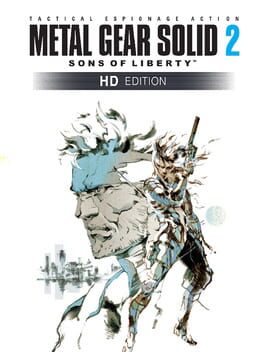In the third act of every Kojima game (that I've played) a spark goes off and a fire starts burning, and it never stops until the credits roll. Everything gets revealed in some loud, over the top way. It's all nonsense you can make some sense of, and can't help being entranced by. When it is done burning, the game looks you in the eyes, embers of absurdity still in the air, and trusts in you a shockingly human and hopeful message about our nature, our world and what we ought to do about it. All of its corniness and rough aspects stick with you, yet coalesce into something that feels more human because of that.
Playing through his repertoire, it's hard not to think of all the grandiosity we impart onto his authorship and all the harm that's caused. However, it's easy to understand why it exists: his artistry is so technically impressive yet his dialogue and gameplay have so many obvious flaws. You feel a human soul throughout his art, like you do a great movie or book, in a way that the corporate art of high budget video gaming never allows for anybody else. It's important not to reduce a large team effort to that of a single person, but it's hard not to picture the passion that so clearly flows through his games commanding so many creatives to achieve a singular vision.
In Death Stranding and Metal Gear Solid 2, that human voice is heard perfectly, and guides you so convincingly. It pokes at a possible future, and preaches to us what we should do for it: to use our single, individual future in the hope of a better future, and better society for us all. Almost like a dad who is a bit too full of himself. And like a child to a dad, you say: "Sure, whatever you say old man", and take from all the pomp and circumstance a single nugget of truth.
Perhaps that's what he wanted us to do after all. It's hard to tell.
Playing through his repertoire, it's hard not to think of all the grandiosity we impart onto his authorship and all the harm that's caused. However, it's easy to understand why it exists: his artistry is so technically impressive yet his dialogue and gameplay have so many obvious flaws. You feel a human soul throughout his art, like you do a great movie or book, in a way that the corporate art of high budget video gaming never allows for anybody else. It's important not to reduce a large team effort to that of a single person, but it's hard not to picture the passion that so clearly flows through his games commanding so many creatives to achieve a singular vision.
In Death Stranding and Metal Gear Solid 2, that human voice is heard perfectly, and guides you so convincingly. It pokes at a possible future, and preaches to us what we should do for it: to use our single, individual future in the hope of a better future, and better society for us all. Almost like a dad who is a bit too full of himself. And like a child to a dad, you say: "Sure, whatever you say old man", and take from all the pomp and circumstance a single nugget of truth.
Perhaps that's what he wanted us to do after all. It's hard to tell.
